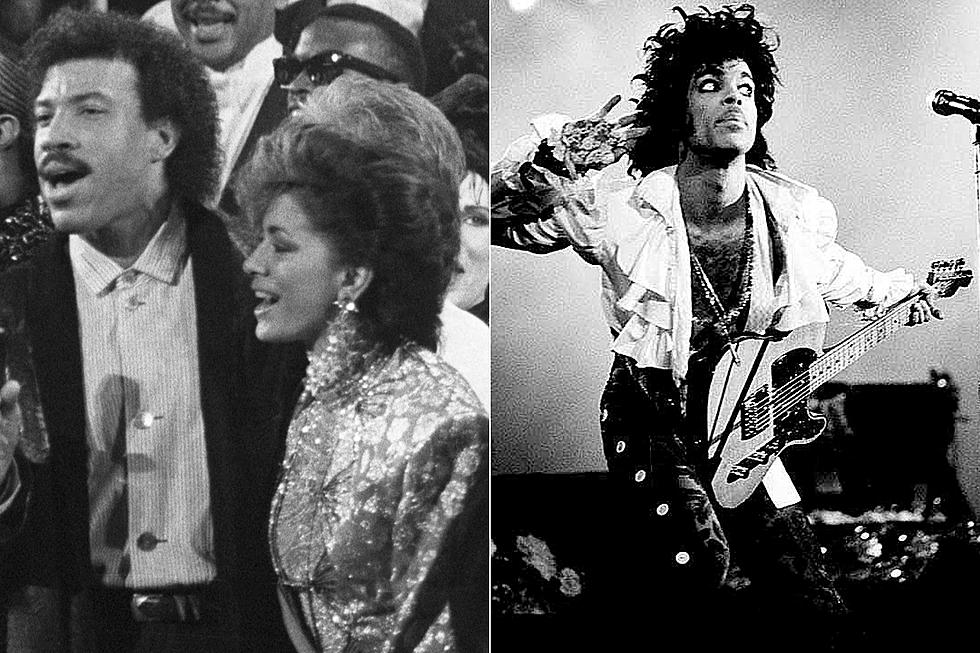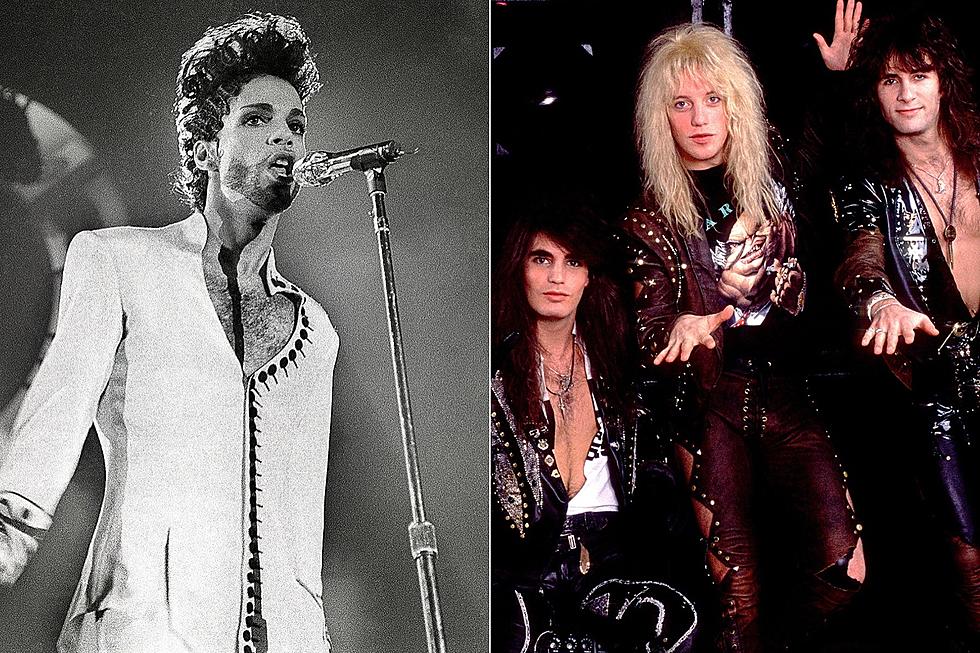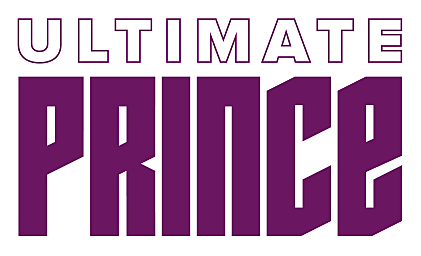
Prince’s ‘Face Down’ Leads to a ‘Seismic Shift’
"Face Down" seems like another literal song on an album filled with them, the outgrowth of period when Prince was very present in his own life. But this Emancipation track came to represent a critical turning point for Prince, as he moved toward the Jehovah's Witness faith.
Many surmised that Prince was referencing the very real heroin overdose of Jonathan Melvoin when he admonished others to "put down the needle, put down the spoon." More than that, though, "Face Down" felt like an obvious thumb in the eye of Warner Bros., a sharp-elbowed response after years of battling with an employer that seemed to think of Prince as property. (His response, of course, was to kill off Prince – in some ways literally.)
Actually, it all started with a snarky music writer.
"It's funny, man. We did this record, The Gold Experience, and for the most part we had really good reviews – but we got this one scathing review," keyboardist Morris Hayes told GQ in 2016. "Usually it didn't bother him, but for whatever reason, this particular one kinda bothered him. He showed it to me and — I was the funny guy — I said, 'You know what, Prince? They can kiss my ass. As a matter of fact, when we die they can bury us facedown and they can kiss our ass on the way out.' I said all of this stuff, I went on a cussing tirade, and he just died laughing."
Two days later, Prince returned to the studio with a new song. The title? "Face Down." "It's everything I said to him about that review," marveled Hayes, who became Prince's longest-serving band member during a stint that lasted from 1992 to 2012.
Watch Prince Perform "Face Down"
Prince apparently tracked the song in 1993-94, since it uses a sample of a phrase ("Dead like Elvis") from Ninety-9's song "Stained Glass," just as Prince did for "Love Sign" from the same period. (Fans will note, too, that Elvis Presley was famously trapped in business entanglements.) "Face Down" appears to have been completed with a section of Clare Fischer's orchestration from "Killin' at the Soda Shop," an unreleased song by Jill Jones.
After that, it became a scorching R&B centerpiece on Prince's "Jam of the Year" tour. "Take your children outside," Prince told the crowd during a 1997 show at the Civic Auditorium in Ohama. "We're going to get funky for about five minutes. I'm serious."
Finally, "Face Down" helped spark his conversion. Prince eventually began to second-guess the song's flinty attitude – and, in particular, its use of profane language, which the Jehovah's Witnesses frown upon. Collaborator Larry Graham, a former bassist with Sly Stone, first exposed Prince to the precepts of this evangelical denomination. "Face Down" provided one of those teachable moments.
"Every time we played the song, Larry and his wife and his daughter would leave the stage," Hayes added. "And finally Prince asked him [about it], and Larry asked, 'Do you ever consider doing a show without the profanity in it?' And Prince told me he said, 'Well, I could do — I mean, it's just artistic expression.' But [Prince] said it embarrassed him, the fact that Larry would go backstage and then wait until the song was over. He said it really called into question how he was delivering his show."
Prince eventually became a practicing member of the Jehovah's Witness in 2001, and Hayes traces it all back to conversations surrounding "Face Down." Before long, Prince was renouncing entire segments of his old catalog, and "Face Down" became nothing more than a filed-away deep cut.
"I think that's when him and Larry started studying, and I noticed at that point a change kicking in," Hayes added. "Then everything changed, and a lot of the songs we used to do, any of the stuff that was super racy, it got killed. There was a seismic shift."
More From Ultimate Prince










